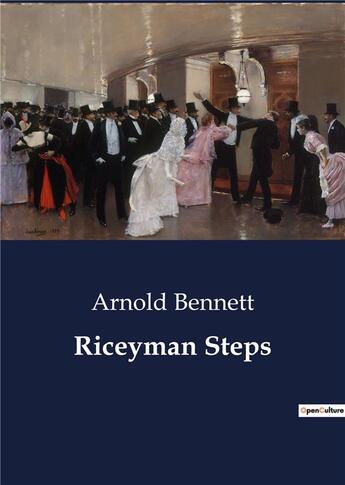-
Date de parution : 30/03/2023
-
Editeur :
Culturea
-
EAN : 9791041803484
-
Série :
(-)
-
Support :
Papier
Résumé:
Riceyman Steps, first published in 1923, is set in dingy and sordid Clerkenwell, in central London, where existence was a dangerous and difficult adventure in almost frantic quest of food, drink and shelter. It's there that Henry Earlforward runs a gloomy, dusty store full of secondhand books.... Voir plus
Riceyman Steps, first published in 1923, is set in dingy and sordid Clerkenwell, in central London, where existence was a dangerous and difficult adventure in almost frantic quest of food, drink and shelter. It's there that Henry Earlforward runs a gloomy, dusty store full of secondhand books. He eats less and less with every day, keeps his young servant Elsie working long hours for minimal pay, and never lights a candle when darkness will do. One day he takes notice of Violet, a middle-aged widow who owns a confectionary shop nearby, and they become husband and wife soon after.
It quickly becomes clear that his miserliness, his grand passion and vice, has rubbed off on Violet, threatening her chances at happiness just as much as his. His obsession also imperils Elsie's ability to help her lover Joe, who returned from World War I with shell shock, and who desperately needs her.
The year it was published Riceyman Steps won the James Tait Black Memorial Prize for Fiction. Its tragic tone represents a departure from many of the novels and stories Arnold Bennett set in the Five Towns, the fictional location inspired by his Staffordshire childhood. Instead, it reflects the pain and disappointment of the years immediately following the Great War. As Earlforward tells a customer early on, We're not quite straight here yet. The truth is, we haven't been straight since 1914.
Donner votre avis










